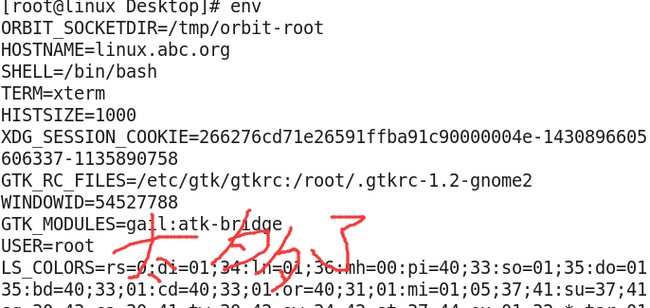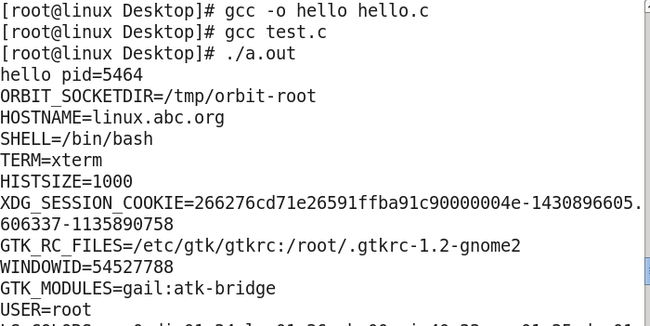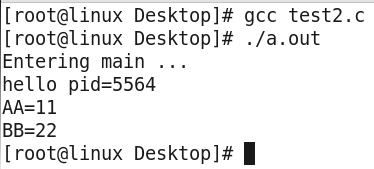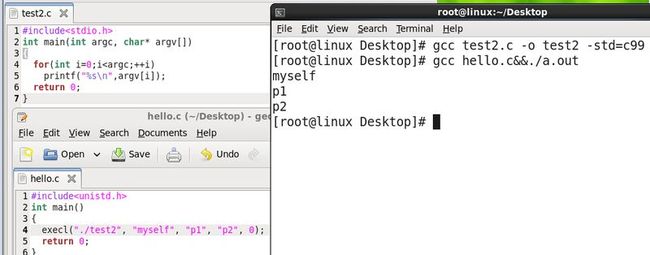- Linux下QT开发的动态库界面弹出操作(SDL2)
13jjyao
QT类qt开发语言sdl2linux
需求:操作系统为linux,开发框架为qt,做成需带界面的qt动态库,调用方为java等非qt程序难点:调用方为java等非qt程序,也就是说调用方肯定不带QApplication::exec(),缺少了这个,QTimer等事件和QT创建的窗口将不能弹出(包括opencv也是不能弹出);这与qt调用本身qt库是有本质的区别的思路:1.调用方缺QApplication::exec(),那么我们在接口
- 多线程之——ExecutorCompletionService
阿福德
在我们开发中,经常会遇到这种情况,我们起多个线程来执行,等所有的线程都执行完成后,我们需要得到个线程的执行结果来进行聚合处理。我在内部代码评审时,发现了不少这种情况。看很多同学都使用正确,但比较啰嗦,效率也不高。本文介绍一个简单处理这种情况的方法:直接上代码:publicclassExecutorCompletionServiceTest{@TestpublicvoidtestExecutorCo
- 2023最详细的Python安装教程(Windows版本)
程序员林哥
Pythonpythonwindows开发语言
python安装是学习pyhon第一步,很多刚入门小白不清楚如何安装python,今天我来带大家完成python安装与配置,跟着我一步步来,很简单,你肯定能完成。第一部分:python安装(一)准备工作1、下载和安装python(认准官方网站)当然你不想去下载的话也可以分享给你,还有入门学习教程,点击下方卡片跳转进群领取(二)开始安装对于Windows操作系统,可以下载“executableins
- RK3229_Android9.0_Box 4G模块EC200A调试
suifen_
网络
0、kernel修改这部分完全可以参考Linux的移植:RK3588EC200A-CN【4G模块】调试_rkec200a-cn-CSDN博客1、修改device/rockchip/rk322xdiff--gita/device.mkb/device.mkindexec6bfaa..e7c32d1100755---a/device.mk+++b/device.mk@@-105,6+105,8@@en
- ElasticSearch查询超过10000条(1000页)时出现Result window is too large的问题
王月亮17
问题当ES数据量较大,使用分页查询超过10000条(1000页)时,出现如下错误:Cannotexecutejestaction,responsecode:500,error:{"root_cause":[{"type":"query_phase_execution_exception","reason":"Resultwindowistoolarge,from+sizemustbelesstha
- 单线程执行器(`SingleThreadedExecutor`)来处理节点的任务
课堂随想
moveit2机器人
intmain(intargc,char**argv){rclcpp::init(argc,argv);rclcpp::NodeOptionsnode_options;node_options.automatically_declare_parameters_from_overrides(true);automove_group_node=rclcpp::Node::make_shared("mo
- SQLite的入门级项目学习记录(二)
深蓝海拓
SQLite学习笔记sqlite学习数据库
再补充一些基础知识:并行操作的问题1、可以多游标同时运行SQLite,对于同一个连接sqlite3.connect(db_file),可以同时创建多个游标,每个游标都是独立的,可以执行各自的SQL命令序列。importsqlite3#创建数据库连接conn=sqlite3.connect('example.db')#创建第一个游标cursor1=conn.cursor()cursor1.execu
- Android 用线程池实现一个简单的任务队列(Kotlin)
深海呐
Android#Android进阶#Kotlinandroidkotlin线程池延时任务队列线程池延时任务
关于线程池,Kotlin和java的使用方式一样在Android中,很多人喜欢用Handler的postDelayed()去实现延时任务.要使用postDelayed(),去实现延时任务队列,就不可避免要使用递归.但是这样做,代码的简洁性,和书写的简易,就远不如使用线程池.使用线程池的简单程度:privatevalmThreadPool=Executors.newSingleThreadSched
- 一条sql是如何执行的详解
听忆.
轻松拿捏【面试干货】sql数据库
一条sql是如何执行的详解1.SQL解析(Parsing)2.查询重写(QueryRewrite)3.查询规划(QueryPlanning)4.查询执行(QueryExecution)5.结果返回示例:查询执行流程总结边走、边悟迟早会好一条SQL查询在PostgreSQL(以及大多数关系型数据库)中的执行过程可以分为多个阶段。每个阶段都对应特定的任务,从SQL解析到最终获取查询结果。以下是SQL查
- linux 中删除乱码中文名文件
痕忆丶
简单教程linuxlinux
在操作linux时会不经意将带有中文的文件发送到linux系统,但是有些linux系统不能识别中文以及中文符号等,会导致linuxshell命令无法操作这些文件想要删除无法识别名字的文件,需要找到其inode号,通过inode删除文件整体操作分为两条指令ls-ifind.-inuminode号-execrm{}\;具体操作如图
- Python 将parquet文件转换为csv文件
一个小坑货
#python常用功能方法python开发语言
Python将parquet文件转换为csv文件使用pyarrow插件将parquet文件转换为csv使用pyarrow插件将parquet文件转换为csv```pythonimportosimportpyarrow.parquetaspqfromconcurrent.futuresimportThreadPoolExecutorimportcsvimporttime#定义一个函数来处理单个Par
- IDEA测试类启动报 “java: 常量字符串过长” 解决办法
无休居士
Java工程常见异常javaintellij-ideaide
目录标题问题描述问题分析解决办法其他办法问题描述问题分析字符串长度过长,导致idea默认使用的javac编译器编译不了。查询资料发现,原因是javac在编译期间,常量字符串最大长度为65534。解决办法Javac编译器改为Eclipse编译器。File->Settings->Build,Execution,Deployment->Compiler->JavaCompiler其他办法如果不是新建pr
- Java 中自定义线程池
胡英俊俊俊
#JUCjava开发语言
Java中自定义线程池的方式在Java开发中,线程池是非常常用的工具,它能够帮助我们更好地管理多线程任务,提升并发性能并避免过度创建线程导致的系统资源消耗。在Java中,线程池主要由ThreadPoolExecutor提供,该类支持自定义线程池的核心参数,如线程数、任务队列以及拒绝策略等。在这篇文章中,我们将讨论如何通过ThreadPoolExecutor来实现自定义线程池,以及常用的配置和使用方
- java unix网络编程_《UNIX网络编程 卷2:进程间通信(第2版)》PDF 下载
weixin_39688019
javaunix网络编程
图书目录:第一部分简介第1章简介1.1概述1.2进程、线程与信息共享1.3IPC对象的持续性1.4名字空间1.5fork、exec和exit对IPC对象的影响1.6出错处理:包裹函数1.7Unix标准1.8书中IPC例子索引表1.9小结习题第2章PosixIPC2.1概述2.2IPC名字2.3创建与打开IPC通道2.4IPC权限2.5小结习题第3章SystemVIPC3.1概述3.2key_t键和
- linux-L9.linux中对文件 按照时间排序 显示100 个
robot_大菜鸟
linux_dotilinuxjavascript运维
find.-typef-execstat--format'%Y%n'{}+|sort-nr|head-n100解释:•find.-typef:在当前目录下查找所有文件。•-execstat--format‘%Y%n’{}+:对每个找到的文件执行stat命令,以获取文件的修改时间(以秒为单位)和文件名,并将它们输出。•管道(|)将这些输出传递到sort命令。•sort-nr:按数值reverse顺序
- android studio 连接模拟器(雷电、夜神)
wiseyao1219
androidstudioandroidide
雷电模拟器打开终端,进入雷电模拟器安装目录,运行:.\adb.execonnect127.0.0.1:5555夜神模拟器打开终端,进入夜神模拟器安装目录,运行:.\nox_adb.execonnect127.0.0.1:62001
- ES6+--》正则扩展_es6 正则扩展
2401_84170337
es6前端ecmascript
//声明一个字符串letstr='百度'//提取url与标签文本constreg=/(.*)///执行constresult=reg.exec(str)console.log(result);console.log(result[1]);console.log(result[2]);//设置分组名constreg1=/.*)">(?.*)/constresult1=reg1.exec(str)co
- python安装selenium失败_python-3.x – 无法为python安装selenium
weixin_39902472
我在python中导入seleniumwebdriver时遇到了一些麻烦.只是为了确保:这是我的小脚本:importseleniumfromseleniumimportwebdriverbrowser=webdriver.Firefox(executable_path='/Users/Sleeps/Webdrivers/Firefox/geckodriver')当我跑来自seleniumimpor
- Antimalware Service Executable 高内存高CPU拒绝访问的处理办法解决方案,无脑安全省事轻松,亲测完全有效,最新2024可用长期有效,改文件所有者提权失效后处理办法
醒了不起的盖茨比Z
学习方法科技开源软件经验分享笔记windows系统安全
不废话,别的所有方法都试过了,没一个有效的,包括提TrustedInstaller权限,折腾了一下午一晚上都没有任何效果,还给电脑环境变量污染了,最后发现最简单最有效的方法是直接火绒粉碎,比啥都好使,几分钟搞定了。软件已经上传了大家直接下载把下面这个路径整个文件夹删除。C:\ProgramFiles\WindowsDefender或者怕出问题的可以找到其中的MsMpEng.exe这个给粉碎掉,如果
- 分布式离线计算—Spark—基础介绍
测试开发abbey
人工智能—大数据
原文作者:饥渴的小苹果原文地址:【Spark】Spark基础教程目录Spark特点Spark相对于Hadoop的优势Spark生态系统Spark基本概念Spark结构设计Spark各种概念之间的关系Executor的优点Spark运行基本流程Spark运行架构的特点Spark的部署模式Spark三种部署方式Hadoop和Spark的统一部署摘要:Spark是基于内存计算的大数据并行计算框架Spar
- pdf转换jpg(Python版本3.10)
大头安
pythonpythonpdf数学建模
importosimportrefromPILimportImagefrompdf2imageimportconvert_from_path,exceptionsfromconcurrent.futuresimportProcessPoolExecutorimporttempfile#解除Pillow的像素限制Image.MAX_IMAGE_PIXELS=Nonechunk_size=10#每个块
- Java Executors类的9种创建线程池的方法及应用场景分析
工业甲酰苯胺
java开发语言
在Java中,Executors类提供了多种静态工厂方法来创建不同类型的线程池。在学习线程池的过程中,一定避不开Executors类,掌握这个类的使用、原理、使用场景,对于实际项目开发时,运用自如,以下是一些常用的方法,一一细说:newCachedThreadPool():创建一个可缓存的线程池,如果线程池中的线程超过60秒没有被使用,它们将被终止并从缓存中移除。newFixedThreadPoo
- Go学习笔记
南方淮竹
golanggolang学习笔记常识后端开发语言人工智能
Go环境变量GOROOT:Go语言安装根目录的路径。GOPATH:若干工作区目录的路径,我们自己定义的工作空间。GOBIN:GO程序生成的可执行文件(executablefile)的路径。国内镜像https://goproxy.cn#macOSorLinuxexportGO111MODULE=onexportGOPROXY=https://goproxy.cn#othersgoenv-wGO111
- 第十四章 使用SQL Shell界面(一)
Cache技术分享
第十四章使用SQLShell界面(一)执行SQL的其他方式可以使用$SYSTEM.SQL.Execute()方法从Terminal命令行执行一行SQL代码,而无需调用SQLShell。以下示例显示如何在终端提示下使用此方法:DHC-APP>SETresult=$SYSTEM.SQL.Execute("SELECTTOP5name,dob,ssnFROMSample.Person")DHC-APP>
- docker ps -a及docker exec -it ubuntu-01 /bin/bash
hhXx_琉璃
dockerubuntubash
dockerps-a命令在Docker中用于列出Docker宿主机上所有的容器,包括正在运行的容器和已经停止的容器。这个命令是Docker用户常用的命令之一,用于查看和管理容器。命令解析:docker:这是Docker的命令行接口,用于执行Docker相关的各种操作。ps:这个命令来源于Unix/Linux中的进程查看命令ps(processstatus),但在Docker上下文中,它被用来列出D
- QT DAY4
_shenash
qt开发语言
作业:要求做一个闹钟clock.proQT+=coreguitexttospeechmain.cpp#include"widget.h"intmain(intargc,char*argv[]){QApplicationa(argc,argv);Widgetw;w.show();returna.exec();}widget.cpp#include"widget.h"Widget::Widget(QW
- Java 中的 ExecutorService 与线程池管理
项目笔记与工具库
javapythonspring
在多线程编程中,频繁地创建和销毁线程是一项非常耗费资源的操作。为了更高效地管理并发任务,Java提供了线程池机制,尤其是通过ExecutorService接口。线程池可以复用已经创建的线程,降低系统资源消耗,从而提升应用的性能和稳定性。本文将讲解ExecutorService的核心功能、常用的线程池实现,以及如何优化线程池的使用。1.什么是ExecutorService?ExecutorServi
- 提示execCommand 被弃用?JS点击复制文字的替代办法
不会做饭的程序员
小知识JS随笔safari前端
前端在页面实现点击复制功能,一般都会使用document.execCommand;虽然现在还能用,但是会提示你即将被废弃,找了一个替代方法,基于Promise,不用像execCommand一样还得选中范围;看了一下兼容性也挺不错的navigator.clipboard.writeText(value);navigator.clipboard.writeText(value).then(()=>{}
- redis的事务与管道有什么不同?
半桶水专家
Redisredis数据库
Redis的事务(MULTI/EXEC)和管道(PIPELINE)都是为了执行多条命令,但它们的工作原理和目标不同。以下是两者的详细对比。1.Redis事务(MULTI/EXEC)特点:事务的本质:Redis事务是一组命令的原子性执行。事务通过MULTI命令开始,用EXEC命令提交。所有在MULTI和EXEC之间的命令会被顺序执行,要么全部执行,要么全部不执行(如果EXEC被调用时Redis处于错
- TensorRT模型量化实践
痛&快乐着
深度学习TensorRTc++深度学习
文章目录量化基本概念量化的方法方式1:trtexec(PTQ的一种)方式2:PTQ2.1pythononnx转trt2.2polygraphy工具:应该是对2.1量化过程的封装方式3:QAT(追求精度时推荐)使用TensorRT量化实践(C++版)使用TensorRT量化(python版)参考文献量化基本概念后训练量化PostTrainingQuantization(PTQ)量化过程仅仅通过离线推
- eclipse maven
IXHONG
eclipse
eclipse中使用maven插件的时候,运行run as maven build的时候报错
-Dmaven.multiModuleProjectDirectory system propery is not set. Check $M2_HOME environment variable and mvn script match.
可以设一个环境变量M2_HOME指
- timer cancel方法的一个小实例
alleni123
多线程timer
package com.lj.timer;
import java.util.Date;
import java.util.Timer;
import java.util.TimerTask;
public class MyTimer extends TimerTask
{
private int a;
private Timer timer;
pub
- MySQL数据库在Linux下的安装
ducklsl
mysql
1.建好一个专门放置MySQL的目录
/mysql/db数据库目录
/mysql/data数据库数据文件目录
2.配置用户,添加专门的MySQL管理用户
>groupadd mysql ----添加用户组
>useradd -g mysql mysql ----在mysql用户组中添加一个mysql用户
3.配置,生成并安装MySQL
>cmake -D
- spring------>>cvc-elt.1: Cannot find the declaration of element
Array_06
springbean
将--------
<?xml version="1.0" encoding="UTF-8"?>
<beans xmlns="http://www.springframework.org/schema/beans"
xmlns:xsi="http://www.w3
- maven发布第三方jar的一些问题
cugfy
maven
maven中发布 第三方jar到nexus仓库使用的是 deploy:deploy-file命令
有许多参数,具体可查看
http://maven.apache.org/plugins/maven-deploy-plugin/deploy-file-mojo.html
以下是一个例子:
mvn deploy:deploy-file -DgroupId=xpp3
- MYSQL下载及安装
357029540
mysql
好久没有去安装过MYSQL,今天自己在安装完MYSQL过后用navicat for mysql去厕测试链接的时候出现了10061的问题,因为的的MYSQL是最新版本为5.6.24,所以下载的文件夹里没有my.ini文件,所以在网上找了很多方法还是没有找到怎么解决问题,最后看到了一篇百度经验里有这个的介绍,按照其步骤也完成了安装,在这里给大家分享下这个链接的地址
- ios TableView cell的布局
张亚雄
tableview
cell.imageView.image = [UIImage imageNamed:[imageArray objectAtIndex:[indexPath row]]];
CGSize itemSize = CGSizeMake(60, 50);
&nbs
- Java编码转义
adminjun
java编码转义
import java.io.UnsupportedEncodingException;
/**
* 转换字符串的编码
*/
public class ChangeCharset {
/** 7位ASCII字符,也叫作ISO646-US、Unicode字符集的基本拉丁块 */
public static final Strin
- Tomcat 配置和spring
aijuans
spring
简介
Tomcat启动时,先找系统变量CATALINA_BASE,如果没有,则找CATALINA_HOME。然后找这个变量所指的目录下的conf文件夹,从中读取配置文件。最重要的配置文件:server.xml 。要配置tomcat,基本上了解server.xml,context.xml和web.xml。
Server.xml -- tomcat主
- Java打印当前目录下的所有子目录和文件
ayaoxinchao
递归File
其实这个没啥技术含量,大湿们不要操笑哦,只是做一个简单的记录,简单用了一下递归算法。
import java.io.File;
/**
* @author Perlin
* @date 2014-6-30
*/
public class PrintDirectory {
public static void printDirectory(File f
- linux安装mysql出现libs报冲突解决
BigBird2012
linux
linux安装mysql出现libs报冲突解决
安装mysql出现
file /usr/share/mysql/ukrainian/errmsg.sys from install of MySQL-server-5.5.33-1.linux2.6.i386 conflicts with file from package mysql-libs-5.1.61-4.el6.i686
- jedis连接池使用实例
bijian1013
redisjedis连接池jedis
实例代码:
package com.bijian.study;
import java.util.ArrayList;
import java.util.List;
import redis.clients.jedis.Jedis;
import redis.clients.jedis.JedisPool;
import redis.clients.jedis.JedisPoo
- 关于朋友
bingyingao
朋友兴趣爱好维持
成为朋友的必要条件:
志相同,道不合,可以成为朋友。譬如马云、周星驰一个是商人,一个是影星,可谓道不同,但都很有梦想,都要在各自领域里做到最好,当他们遇到一起,互相欣赏,可以畅谈两个小时。
志不同,道相合,也可以成为朋友。譬如有时候看到两个一个成绩很好每次考试争做第一,一个成绩很差的同学是好朋友。他们志向不相同,但他
- 【Spark七十九】Spark RDD API一
bit1129
spark
aggregate
package spark.examples.rddapi
import org.apache.spark.{SparkConf, SparkContext}
//测试RDD的aggregate方法
object AggregateTest {
def main(args: Array[String]) {
val conf = new Spar
- ktap 0.1 released
bookjovi
kerneltracing
Dear,
I'm pleased to announce that ktap release v0.1, this is the first official
release of ktap project, it is expected that this release is not fully
functional or very stable and we welcome bu
- 能保存Properties文件注释的Properties工具类
BrokenDreams
properties
今天遇到一个小需求:由于java.util.Properties读取属性文件时会忽略注释,当写回去的时候,注释都没了。恰好一个项目中的配置文件会在部署后被某个Java程序修改一下,但修改了之后注释全没了,可能会给以后的参数调整带来困难。所以要解决这个问题。
&nb
- 读《研磨设计模式》-代码笔记-外观模式-Facade
bylijinnan
java设计模式
声明: 本文只为方便我个人查阅和理解,详细的分析以及源代码请移步 原作者的博客http://chjavach.iteye.com/
/*
* 百度百科的定义:
* Facade(外观)模式为子系统中的各类(或结构与方法)提供一个简明一致的界面,
* 隐藏子系统的复杂性,使子系统更加容易使用。他是为子系统中的一组接口所提供的一个一致的界面
*
* 可简单地
- After Effects教程收集
cherishLC
After Effects
1、中文入门
http://study.163.com/course/courseMain.htm?courseId=730009
2、videocopilot英文入门教程(中文字幕)
http://www.youku.com/playlist_show/id_17893193.html
英文原址:
http://www.videocopilot.net/basic/
素
- Linux Apache 安装过程
crabdave
apache
Linux Apache 安装过程
下载新版本:
apr-1.4.2.tar.gz(下载网站:http://apr.apache.org/download.cgi)
apr-util-1.3.9.tar.gz(下载网站:http://apr.apache.org/download.cgi)
httpd-2.2.15.tar.gz(下载网站:http://httpd.apac
- Shell学习 之 变量赋值和引用
daizj
shell变量引用赋值
本文转自:http://www.cnblogs.com/papam/articles/1548679.html
Shell编程中,使用变量无需事先声明,同时变量名的命名须遵循如下规则:
首个字符必须为字母(a-z,A-Z)
中间不能有空格,可以使用下划线(_)
不能使用标点符号
不能使用bash里的关键字(可用help命令查看保留关键字)
需要给变量赋值时,可以这么写:
- Java SE 第一讲(Java SE入门、JDK的下载与安装、第一个Java程序、Java程序的编译与执行)
dcj3sjt126com
javajdk
Java SE 第一讲:
Java SE:Java Standard Edition
Java ME: Java Mobile Edition
Java EE:Java Enterprise Edition
Java是由Sun公司推出的(今年初被Oracle公司收购)。
收购价格:74亿美金
J2SE、J2ME、J2EE
JDK:Java Development
- YII给用户登录加上验证码
dcj3sjt126com
yii
1、在SiteController中添加如下代码:
/**
* Declares class-based actions.
*/
public function actions() {
return array(
// captcha action renders the CAPTCHA image displ
- Lucene使用说明
dyy_gusi
Lucenesearch分词器
Lucene使用说明
1、lucene简介
1.1、什么是lucene
Lucene是一个全文搜索框架,而不是应用产品。因此它并不像baidu或者googleDesktop那种拿来就能用,它只是提供了一种工具让你能实现这些产品和功能。
1.2、lucene能做什么
要回答这个问题,先要了解lucene的本质。实际
- 学习编程并不难,做到以下几点即可!
gcq511120594
数据结构编程算法
不论你是想自己设计游戏,还是开发iPhone或安卓手机上的应用,还是仅仅为了娱乐,学习编程语言都是一条必经之路。编程语言种类繁多,用途各 异,然而一旦掌握其中之一,其他的也就迎刃而解。作为初学者,你可能要先从Java或HTML开始学,一旦掌握了一门编程语言,你就发挥无穷的想象,开发 各种神奇的软件啦。
1、确定目标
学习编程语言既充满乐趣,又充满挑战。有些花费多年时间学习一门编程语言的大学生到
- Java面试十问之三:Java与C++内存回收机制的差别
HNUlanwei
javaC++finalize()堆栈内存回收
大家知道, Java 除了那 8 种基本类型以外,其他都是对象类型(又称为引用类型)的数据。 JVM 会把程序创建的对象存放在堆空间中,那什么又是堆空间呢?其实,堆( Heap)是一个运行时的数据存储区,从它可以分配大小各异的空间。一般,运行时的数据存储区有堆( Heap)和堆栈( Stack),所以要先看它们里面可以分配哪些类型的对象实体,然后才知道如何均衡使用这两种存储区。一般来说,栈中存放的
- 第二章 Nginx+Lua开发入门
jinnianshilongnian
nginxlua
Nginx入门
本文目的是学习Nginx+Lua开发,对于Nginx基本知识可以参考如下文章:
nginx启动、关闭、重启
http://www.cnblogs.com/derekchen/archive/2011/02/17/1957209.html
agentzh 的 Nginx 教程
http://openresty.org/download/agentzh-nginx-tutor
- MongoDB windows安装 基本命令
liyonghui160com
windows安装
安装目录:
D:\MongoDB\
新建目录
D:\MongoDB\data\db
4.启动进城:
cd D:\MongoDB\bin
mongod -dbpath D:\MongoDB\data\db
&n
- Linux下通过源码编译安装程序
pda158
linux
一、程序的组成部分 Linux下程序大都是由以下几部分组成: 二进制文件:也就是可以运行的程序文件 库文件:就是通常我们见到的lib目录下的文件 配置文件:这个不必多说,都知道 帮助文档:通常是我们在linux下用man命令查看的命令的文档
二、linux下程序的存放目录 linux程序的存放目录大致有三个地方: /etc, /b
- WEB开发编程的职业生涯4个阶段
shw3588
编程Web工作生活
觉得自己什么都会
2007年从学校毕业,凭借自己原创的ASP毕业设计,以为自己很厉害似的,信心满满去东莞找工作,找面试成功率确实很高,只是工资不高,但依旧无法磨灭那过分的自信,那时候什么考勤系统、什么OA系统、什么ERP,什么都觉得有信心,这样的生涯大概持续了约一年。
根本不是自己想的那样
2008年开始接触很多工作相关的东西,发现太多东西自己根本不会,都需要去学,不管是asp还是js,
- 遭遇jsonp同域下变作post请求的坑
vb2005xu
jsonp同域post
今天迁移一个站点时遇到一个坑爹问题,同一个jsonp接口在跨域时都能调用成功,但是在同域下调用虽然成功,但是数据却有问题. 此处贴出我的后端代码片段
$mi_id = htmlspecialchars(trim($_GET['mi_id ']));
$mi_cv = htmlspecialchars(trim($_GET['mi_cv ']));
贴出我前端代码片段:
$.aj






